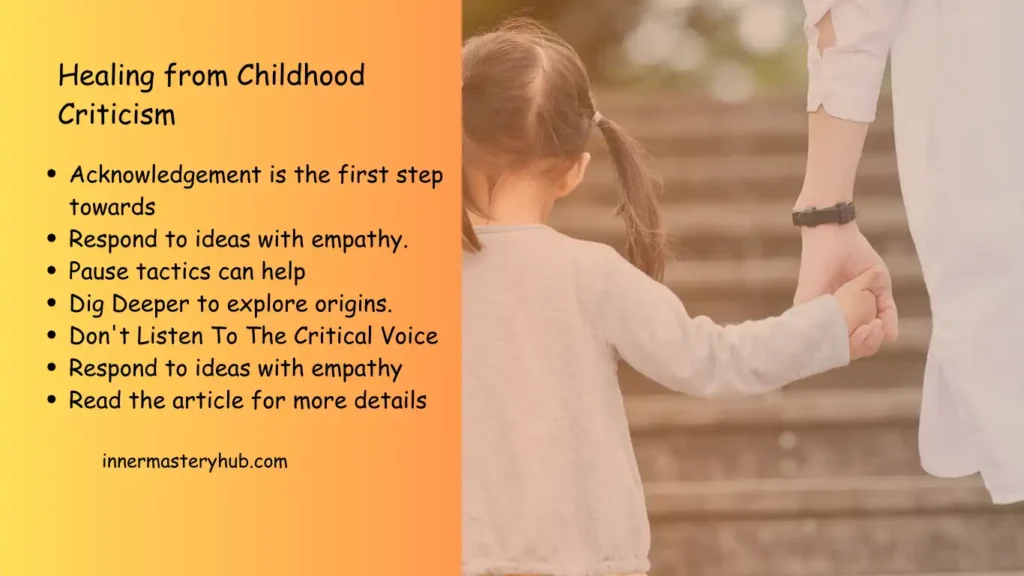How Self-Abandonment Quietly Breaks Your Heart
Self-Abandonment
Self-abandonment meaning is when you ignore your own needs, feelings, or boundaries to keep others happy or avoid conflict. Over time, it can lead to resentment, anxiety, and low self-worth. Healing starts with noticing the pattern, practicing self-compassion, and choosing small acts of self-respect daily.

Many people find that the issue of “self-abandonment” is a significant obstacle to the complex process of self-discovery and personal growth. It is often a taboo topic, but it may have a substantial impact on our relationships, self-worth, and overall well-being.
This blog provides in-depth discussions of self-abandonment, including its definition, causes, and above all, solutions. As we embark on a life-changing self-exploration, we’ll share our discoveries and practical tips to help you regain your sense of value and build a more fulfilling life. Let’s embark on this journey of empowerment together.
What is Self Abandonment?
Self-abandonment is a pattern of ignoring your thoughts, feelings, and needs. It can manifest in many different ways, such as:
- Prioritizing others over yourself
- Putting your needs on the back burner
- Ignoring your gut feelings
- Staying in toxic relationships
- Engaging in self-destructive behaviors
Childhood experiences are frequently the source of self-abandonment. As a child, you might have learned to leave yourself behind if your needs weren’t met or your feelings weren’t acknowledged.
The physical and mental effects of self-abandonment can be catastrophic. Relationship issues, low self-esteem, anxiety, and depression might result from it.
Why do we abandon ourselves?
We might abandon ourselves due to a lack of self-trust for many reasons. Some of the most common reasons include:
- Childhood experiences. If we didn’t have our needs met or our feelings validated as children, we may have learned to abandon ourselves to survive. This can be especially true if we experience abuse or neglect.
- Low self-esteem. If we don’t believe we are worthy of love and respect, we are more likely to abandon ourselves. This can be due to several factors, such as unmet needs in childhood, bullying, or criticism from others.
- Perfectionism. If we have unrealistic expectations, we are more likely to feel not good enough. This can lead us to abandon ourselves in an attempt to meet our impossible standards.
- People-pleasing. If we are always trying to please others and seeking validation from them, we may neglect our own needs. This can typically lead to feelings of resentment and self-abandonment.
- Trauma. Traumatic experiences can lead us to disconnect from ourselves and our emotions to cope. This can make it challenging to meet our needs and care for ourselves.
Self-abandonment is not a choice. It is a coping mechanism that we may develop in response to challenging experiences. Once we become aware of our self-abandonment patterns, we can heal and learn to better care for ourselves.
Examples of self-abandonment symptoms
Here are some examples of self-abandonment:
Putting the needs of others above your own. This could manifest as consistently accepting requests from people, even when you’re feeling overburdened, or repressing your desire to assist others.
Putting your needs on hold. Examples of this include working long hours without breaks, napping because you have too much to accomplish, or missing meals.
Ignoring your instincts. Staying in a relationship you know isn’t healthy or attending a job interview for a position you don’t want are examples of this.
Continuing to be in unhealthy relationships. Staying in a love relationship with someone who is violent or neglectful, or maintaining a friendship with someone who constantly puts you down, are examples of this.
Avoiding conflicts. Avoiding conflict means not addressing or resolving disagreements, disputes, or issues. Maintaining peace and harmony is often more important to them than resolving disputes, which can have negative long-term implications for relationships with others and in the workplace.
Codependency. Codependency is a relationship pattern in which one person’s emotional well-being and sense of self are excessively dependent on another. It usually means lending a hand or being overly reliant on a partner, friend, or relative, which results in codependent and unhealthy relationships that emphasize self-abandonment.
Self-abandonment cycle
A self-abandonment cycle is a repeating pattern where you ignore your own needs to keep someone else close, then feel hurt and resentful, and try even harder to please, losing yourself more each time.
Common cycle:
- You fear rejection or conflict
- You silence your feelings/needs
- You overgive, people-please, or tolerate disrespect
- You feel anxious, unseen, or resentful
- You blame yourself and try to “fix it” by giving more
- You feel emptier and more dependent on approval
- The fear returns, and the cycle repeats
Ways to interrupt it:
- Name your need (even privately)
- Practice one clear boundary (“I’m not okay with that.”)
- Delay the “fixing” urge (pause 10 minutes)
- Choose one self-support action daily (rest, food, friend, journaling)
- Ask directly for what you need, once, calmly
10 Ways to Stop Self-Abandonment
Here are coping mechanisms;
1. Allow yourself to have feelings and needs.
Prioritizing feelings and needs isn’t selfish. It shows self-respect and affection. By meeting your emotional and physical needs, you may help others and develop stronger connections.
Allow yourself to have emotions and wants, especially when addressing self-abandonment. I’ve experienced how easy it is to dismiss our feelings to please others or maintain harmony.
Your feelings, needs, and desires count. They’re part of who you are; admitting them is the first step to healing and empowerment.
Sad, furious, glad, or any other emotion is fine. Don’t criticize your feelings. Emotions are natural and reveal your life’s happenings. Let yourself feel and express your feelings to honor yourself.
Honor your feelings, follow your intuition, and speak up. This powerfully stops self-abandonment and starts self-discovery and progress. You deserve to be yourself.
How to repair self-abandonment?
Notice when you ignore your needs. Pause, breathe, and name what you feel. Offer yourself the support you’d give a friend. Set one small boundary daily. Keep promises to yourself. Seek therapy or a trusted person for steady accountability and care.
2. Allow yourself to be creative and unique.
Being creative and distinctive is a lovely way to fight self-abandonment. It’s easy to adapt to society’s norms or expectations. However, you are a unique creation that should be celebrated.
Creativeness is your gift to the world. Whether you express yourself through painting, literature, problem-solving, or other means, your creative energy defines you. When you suppress it, you miss out on self-discovery and growth.
Being creative and distinctive is about being yourself, not pleasing others. You should embrace your eccentricities, interests, and dreams. Self-acceptance and self-love begin with embracing your uniqueness.
3. Stand up for yourself.
Learning to defend oneself is crucial to healing from self-abandonment. This involves prioritizing your needs even if it means declining others. It also implies standing up for yourself when mistreated.
If you’re used to giving up, standing up for yourself can be daunting. But you deserve respect and kindness. You deserve satisfaction.
Determine what you need to be happy and healthy. You can advocate for your needs once you know them.
You can say no, even if you want to please. You can also take time for yourself despite other obligations. Set boundaries to conserve energy and take care of yourself. Communicate clearly and directly. Avoid evasion and passive voice.
When you start to stand up for yourself, some people may not be happy about it. They may try to guilt-trip you or make you feel bad about yourself. But it’s important to stay strong and stay true to your needs.
4. Take Control Of Your Mental Health
Avoid self-abandonment by managing your mental health. Abandoning yourself neglects your needs and wants. Anxiety, despair, and low self-esteem can result. You can recover from self-abandonment’s mental health effects. Take care of yourself, seek help, and consider your feelings.
Asking for help is not weak. It’s effective. Take up counseling, meditation, or other mental health methods that appeal to you. When you write your mental health story, choose self-compassion and self-empowerment. It’s alright to feel bad, but you can also improve your mental health.
How do you know if you have abandonment issues?
You might have self-abandonment issues if you often fear people will leave, feel anxious when others are distant, seek constant reassurance, cling in relationships, assume rejection quickly, or feel intense jealousy. You may overreact to small changes and struggle to trust.
5. Pardon yourself
Self-abandonment often meets self-blame. You should ask for forgiveness. Please forgive yourself for past decisions and accept that you followed your intuition and are continuously growing. Please forgive yourself as you would a friend.
Self-forgiveness aids healing and self-acceptance. Move on with a lighter heart and less regret. Because you’re human, mistakes are inevitable. Accept development and self-love by forgiving yourself.
Subscribe to our newsletter to get the latest updates!
6. Be Your Comfort Zone
Abandonment typically leads to self-blame. Please ask pardon. Forgive yourself for past mistakes, recognize that you followed your intuition, and realize you are evolving. Forgive yourself like a friend.
Forgiveness fosters healing and self-acceptance. Be less sad and regretful. As humans, mistakes are inevitable. Accept growth and self-love by forgiving yourself.
7. Accept you are worthy.
Owning your value means believing you deserve love, respect, and happiness regardless of your circumstances or achievements. It means accepting yourself, flaws and all, and thinking you deserve love and happiness just for being alive. Do you know your values? Your strengths and weaknesses? Your dreams and goals? You feel more worthy when you learn more about yourself.
8. Tame Your Inner Critic
You’re told you’re not good enough, smart enough, or loved by your inner critic. Abandoning oneself validates your inner critic. You say you deserve bad treatment. So your inner critic gets louder.
Listen to its message. Knowing what it says lets you confront it. Ask for proof of your inner critic’s allegations. Replace negative thoughts with optimistic and realistic ones.
When your inner critic is nasty, talk to yourself like a depressed buddy. Getting your inner critic back is time-consuming but worthwhile. When your inner critic is helpful, you’ll feel better and take better care of yourself.
9. Understanding Your Triggers
Triggers are things that can cause you to feel overwhelmed or stressed, and they can lead to self-abandoning behaviors.
- Anxiety
- Stress
- Depression
- Trauma
- Rejection
- Criticism
- Conflict
Once you know your triggers, you can start developing coping mechanisms to manage them.
This may include treatment, support groups, or relaxation.
Be mindful of your emotions and body. How do stress and overwhelm affect your body and mind? Do you become worried or depressed? Withdraw from others? Do you self-harm?
Find your triggers. Once you know your triggers, you can avoid or cope with them.
Consult a therapist. Therapists can help you identify triggers and build coping methods.
10. Releasing Guilt and Shame
Guilt and shame are two related but distinct emotions. Guilt is the feeling of responsibility for a wrong or hurtful act. Shame is the feeling of being flawed or worthless as a person.
Here are some examples of guilt and shame:
- Guilt: Feeling guilty after lying to a friend.
- Shame: Feeling ashamed for making a mistake at work.
- Guilt: Feeling guilty for not spending enough time with family.
- Shame: Feeling ashamed for being overweight.
You can eliminate self-abandonment guilt and shame by forgiving yourself. All humans make mistakes. Humanity includes it. Self-abandonment is not your fault. You develop coping strategies to handle unpleasant situations. You weren’t weak or imperfect to abandon yourself. You did that to cope with hardships. Tell yourself you deserve love and respect. Removing guilt and shame is crucial to self-abandonment recovery.
Self-abandonment healing
Healing self-abandonment means learning to stay loyal to yourself. Notice when you silence needs, overgive, or accept less to avoid rejection. Pause, name your feelings, and choose one small self-supporting action. Set gentle boundaries and ask clearly for what you need. Practice self-compassion, not self-blame. Over time, you build safety inside and healthier relationships outside.
FAQS About Self-abandonment
Self-abandonment in Relationships
Self-abandonment in relationships is when you put your partner’s needs and wants ahead of your own, neglecting your own needs and feelings. This can lead to resentment, anger, and sadness, and damage self-esteem. To overcome self-abandonment in relationships, identify your needs, set boundaries, communicate openly with your partner, and care for yourself.
What causes a person to abandon themselves?
People may abandon themselves due to low self-esteem, societal pressures, past trauma, or the fear of rejection. It can result from neglecting one’s needs, values, and desires to conform or please others, ultimately leading to self-neglect and a loss of authentic identity.
Do I have emotional abandonment?
I don’t have enough information to determine if you have experienced emotional abandonment. Emotional abandonment often involves feeling neglected or unsupported by someone significant in your life. If you think this way, seeking support from a therapist or counselor to explore and address these feelings is essential.
How do I know if I have trauma abandonment?
You may have trauma-related abandonment issues if you experience intense fear of rejection, struggle to trust others, have recurrent feelings of worthlessness or self-blame, and if past abandonment experiences significantly impact your relationships and well-being. Consulting a mental health professional can help assess and address such trauma.
What are the five stages of abandonment?
The five forms of self-abandonment are:
Shock and disbelief: This is the initial stage, where you may feel numb or unable to process what is happening.
Anger and denial: You may feel angry at the person who abandoned you and deny that it has happened.
Bargaining and guilt: You may try to bargain with the person who abandoned you or feel guilty for something you did or didn’t do.
Depression and sadness: You may feel depressed and sad and lose interest in the things you used to enjoy.
Acceptance: This is the final stage, where you come to terms with what has happened and start to move on with your life.
How does a person with abandonment issues act?
A person with abandonment issues might exhibit clinginess, fear of rejection, trust issues, and difficulty forming secure relationships. They can be emotionally reactive, seek constant reassurance, or isolate themselves to avoid potential abandonment. Such behaviors stem from a deep-seated fear of abandonment or rejection by those they care about.
How do you heal self-abandonment?
Healing self-abandonment often involves self-compassion, self-awareness, and therapy. Recognize self-worth, set boundaries, and prioritize self-care. Identify underlying issues, such as low self-esteem or past trauma. A therapist can provide guidance, support, and tools to foster self-love, self-acceptance, and healthier relationships with oneself.
What is abandonment in a relationship?
Abandonment in a relationship is when someone feels left behind, rejected, or emotionally unsupported by their partner. It can happen through leaving, repeated threats to leave, neglect, or lack of care, making the other person feel unsafe and alone.






